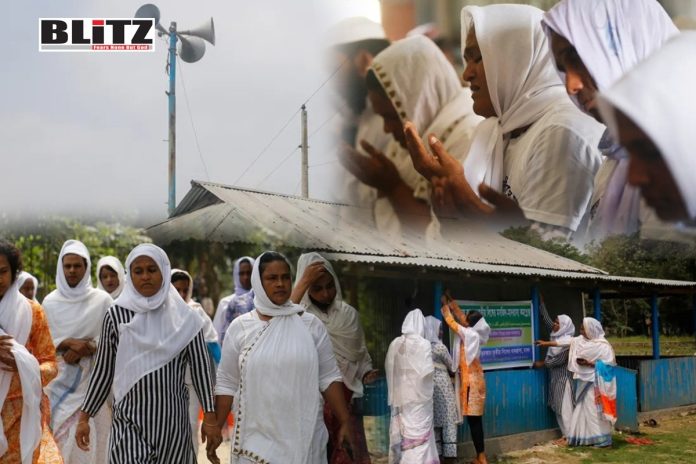In a remarkable stride towards inclusivity and acceptance, Bangladesh has unveiled a groundbreaking initiative by opening its doors to the Muslim transgender hijra community within the sacred walls of a newly constructed mosque. Situated near Mymensingh, north of the capital Dhaka, this humble sanctuary stands as a beacon of hope and equality in a nation predominantly adherent to the Islamic faith.
For years, members of the hijra community have grappled with discrimination and exclusion from mainstream society. Despite being officially recognized as a third gender since 2013, they have often been denied the fundamental right to worship alongside their fellow Muslims. However, the inauguration of this mosque signifies a pivotal moment, promising worship without prejudice for a community long marginalized.
The journey towards the establishment of this sanctuary began with a poignant narrative of resilience and determination. Disallowed from attending conventional prayer services, the hijra community found solace and support in the solidarity of their own. Land donated by the government served as the foundation for this sacred space, offering refuge to those who had been expelled from established congregations.
Sonia, a member of the hijra community, reflects on the significance of this momentous occasion, expressing gratitude for the opportunity to reconnect with her faith. “I never dreamt I could pray at a mosque again in my lifetime,” she shares, her voice trembling with emotion. “Now, this is our mosque. Now, no one can say no.”
The struggle for recognition and acceptance has been a constant battle for hijras in Bangladesh. Despite strides in legal and political spheres, they continue to face systemic challenges, including limited property and marriage rights, as well as discrimination in employment and education. However, the opening of this mosque represents a symbolic step towards dismantling barriers and fostering inclusivity.
Mufti Abdur Rahman Azad, the visionary behind this initiative and founder of a hijra charity, emphasizes the significance of this milestone. “The new mosque is the first of its kind in the country,” he states proudly, underscoring its importance in challenging societal norms and promoting tolerance.
However, the road to acceptance has not been without its obstacles. Hardline Islamist groups have vehemently opposed the recognition of transgender individuals, leading to protests and backlash against progressive measures. Yet, amidst adversity, the resilience of the hijra community shines through, as demonstrated by their unwavering commitment to building a sanctuary where they can practice their faith without fear of discrimination.
The mosque, affectionately christened as the Dakshin Char Kalibari Masjid for the Third Gender, stands resolute as a poignant testament to the enduring power of unity and compassion. Constructed through the collaborative endeavors of numerous dedicated local hijras, this sacred edifice transcends its physical form to embody a profound symbol of hope and belonging for a community that has endured long-standing marginalization.
Imam Abdul Motaleb, the spiritual leader of the mosque, emphasizes the inclusive teachings of Islam, affirming the inherent dignity and worth of all individuals. “They are like any other people created by Allah,” he asserts, dispelling misconceptions and championing equality.
As the mosque opens its doors to worshippers, it also opens hearts and minds, challenging preconceived notions and fostering understanding. Tofazzal Hossain, a local resident, attests to the transformative power of this experience, acknowledging the profound impact it has had on his perceptions. “They live righteously like other Muslims,” he reflects, his voice filled with newfound respect and admiration.
In a world often plagued by division and discord, Bangladesh’s pioneering initiative serves as a powerful reminder of the transformative potential of compassion and acceptance. As the transgender hijra community finds sanctuary within the sacred confines of this mosque, it sends a resounding message of unity and solidarity-one that transcends boundaries and embraces the inherent dignity of every individual.




